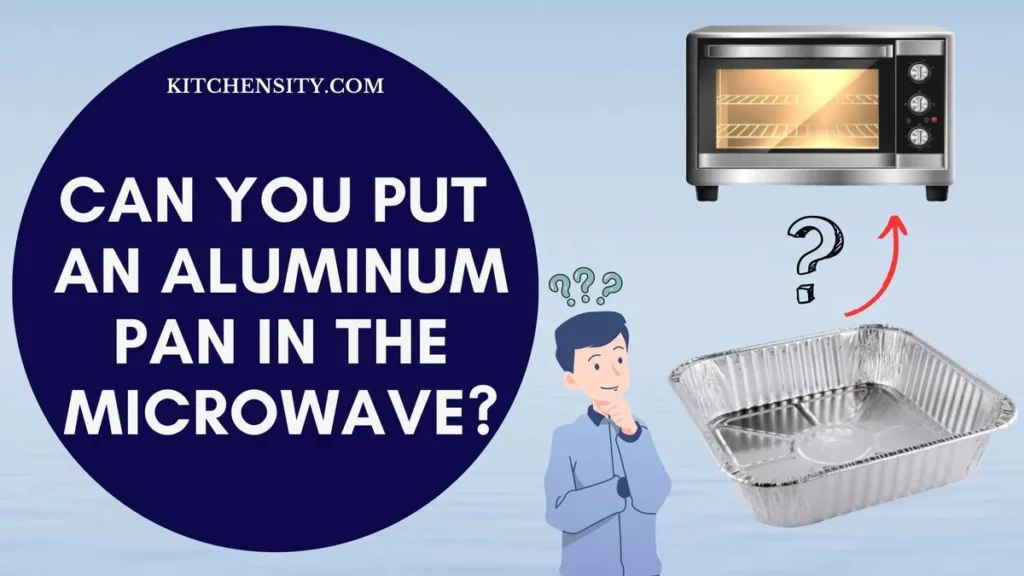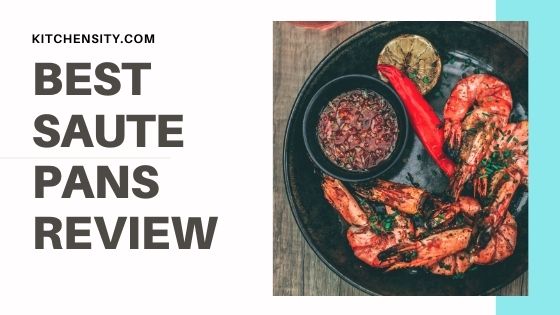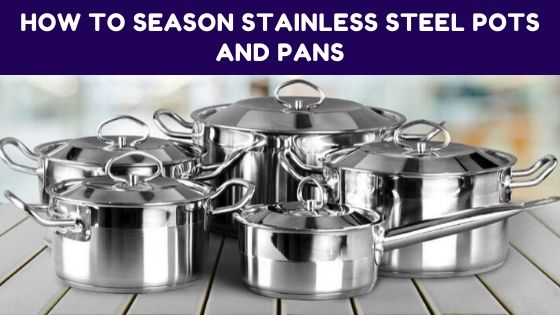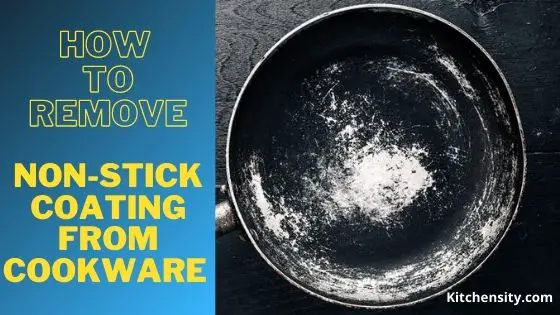Microwaves have become an indispensable appliance in modern kitchens, allowing us to quickly and conveniently heat or cook our meals.
However, when it comes to using certain types of cookware, such as aluminum pans, questions may arise regarding their safety and compatibility with microwave ovens.
In this article, we will explore the topic of whether you can put an aluminum pan in the microwave, discuss the potential risks, and alternatives, and provide guidelines for safe microwave usage.

Table of Contents
- 1 Can You Put An Aluminum Pan In The Microwave?
- 2 Understanding Microwaves And How They Work?
- 3 The Relationship Between Aluminum And Microwaves
- 4 Potential Risks Of Using Aluminum Pans In The Microwave
- 5 Can Aluminum Foil Be Used In The Microwave?
- 6 How Do You Reheat Food In An Aluminum Pan?
- 7 Why Use Aluminum Pans In The First Place?
- 8 Alternatives To Aluminum Pans For Microwave Cooking
- 9 Dos And Don’ts Of Using An Aluminum Pan
- 10 Guidelines For Safe Microwave Usage
- 11 Conclusion
- 12 FAQs
- 12.1 What Happens If You Put An Aluminum Pan In The Microwave?
- 12.2 How Long Can Aluminum Foil Be In The Microwave?
- 12.3 Why Do People Consider Aluminum Pans Unsafe To Use?
- 12.4 Can Using An Aluminum Pan In The Microwave Cause A Fire?
- 12.5 Can I Use Aluminum Foil To Cover Food In The Microwave?
- 12.6 Are There Any Safe Alternatives To Aluminum Pans For Microwave Cooking?
- 12.7 Can I Use Aluminum Pans In A Conventional Oven?
- 12.8 How Can I Determine If A Dish Is Microwave-Safe?
Can You Put An Aluminum Pan In The Microwave?
No, it is not safe to put an aluminum pan in the microwave. Aluminum reflects microwaves and can cause sparks, potentially leading to fire hazards and damage to the microwave oven. It is recommended to use microwave-safe glass, ceramic, or microwave-safe plastic cookware for safe microwave usage.
Also Read – What Happens When You Put Aluminum Foil In The Oven?
Understanding Microwaves And How They Work?
Microwaves operate by emitting electromagnetic waves that interact with the water molecules present in food. These waves cause the water molecules to vibrate rapidly, generating heat in the process. As a result, the food is cooked or reheated effectively.
The electromagnetic waves produced by the microwave oven are absorbed by the water molecules in the food, causing them to vibrate and generate heat. This heating process is what allows the food to be cooked or reheated efficiently.
Also Read – Can You Put Enameled Cast Iron In The Oven?
The Relationship Between Aluminum And Microwaves
Aluminum is known for its high conductivity, which means it efficiently transfers heat. However, when it comes to microwaves, aluminum behaves uniquely.
Unlike many other materials used in microwave-safe cookware, aluminum does not absorb microwave energy. Instead, it reflects microwaves, which can lead to sparks and potential damage to the microwave oven.
- When microwaves encounter aluminum, they are not absorbed but rather bounce off the surface.
- This reflection can cause a buildup of energy, resulting in sparks. These sparks can be hazardous and pose a fire risk.
- Additionally, the intense heat generated by the sparks can potentially harm the food being cooked or reheated in the aluminum pan.
Due to its reflective properties, using an aluminum pan in the microwave is not recommended. It is important to choose microwave-safe cookware made from materials that do not reflect microwaves, such as glass, ceramic, or microwave-safe plastic.
By selecting the appropriate cookware, you can ensure safe and effective microwave usage without the risk of sparking or damaging the oven.
Also Read – Can You Bake A Cake In A Glass Pan?
Potential Risks Of Using Aluminum Pans In The Microwave
Using aluminum pans in the microwave can pose several potential risks.
- One of the main concerns is the sparks that can occur due to the reflection of microwaves off the aluminum surface.
- These sparks can be hazardous and have the potential to cause fires, putting both the user and the surrounding environment at risk.
- The sparks can ignite flammable materials and create dangerous situations in the kitchen.
Furthermore, the intense heat generated by these sparks can also pose a risk to the food being cooked or reheated in the aluminum pan. The uneven heating caused by the sparks can lead to hot spots, which may result in unevenly cooked or overheated food.
In some cases, the heat generated by the sparks can even cause the food to become excessively hot, potentially leading to burns if not handled with caution.
- In addition to the immediate risks, using aluminum pans in the microwave can also cause long-term damage to the interior of the microwave oven.
- The sparks produced by the aluminum can damage the oven’s walls, ceiling, and floor, compromising its functionality and potentially necessitating expensive repairs or even replacement.
Given these potential risks, it is strongly advised to avoid using aluminum pans in the microwave. Instead, opt for microwave-safe cookware made from materials such as glass, ceramic, or microwave-safe plastic that do not pose the same hazards.
By prioritizing safety and using appropriate cookware, you can ensure a safer and more enjoyable microwave cooking experience.
Also Read – Dutch Oven Vs Roasting Pan
Can Aluminum Foil Be Used In The Microwave?
Using aluminum foil in the microwave is generally not recommended. While aluminum foil is a versatile kitchen tool, it can cause potential hazards when used in the microwave.
- When microwaves come into contact with aluminum foil, they can reflect the waves and cause sparks.
- These sparks can damage the interior of the microwave oven and pose a fire risk.
- The intense heat generated by the sparks can also lead to food overheating or uneven cooking.
However, there are some cases where aluminum foil can be used safely in the microwave. Some manufacturers produce microwave-safe aluminum foil explicitly designed for this purpose. These products are labeled as safe for microwave use and have specific instructions on how to use them safely.
To ensure your safety, it is best to follow the general guideline of not using regular aluminum foil in the microwave unless it is labeled as microwave-safe.
Instead, opt for microwave-safe containers made of glass, ceramic, or microwave-safe plastic for your microwave cooking needs. Always refer to the manufacturer’s instructions and guidelines for safe usage.
Also Read – Are Gotham Steel Pans Oven-Safe?
How Do You Reheat Food In An Aluminum Pan?
When it comes to reheating food, using an aluminum pan in the microwave is not recommended due to the risks associated with sparks and potential damage to the oven.
However, if you have already cooked food in an aluminum pan and need to reheat it, there are alternative methods you can use:
- Microwave-Safe Dish: Transfer the food from the aluminum pan to a microwave-safe dish made of glass, ceramic, or microwave-safe plastic. These materials are designed to withstand the heat and ensure safe reheating.
- Stovetop Reheating: If the food is suitable for stovetop reheating, you can transfer it to a non-stick skillet or saucepan. Heat the pan over low to medium heat, stirring occasionally to ensure even reheating.
- Oven Reheating:
- Preheat your oven to a low to moderate temperature (around 300°F to 350°F or 150°C to 175°C).
- Place the food in an oven-safe dish and cover it with aluminum foil or a lid to retain moisture.
- Reheat the food in the oven until it reaches the desired temperature, stirring occasionally if needed.
- Steaming:
- Another option is to use a steamer basket or a steaming pot.
- Transfer the food to the steamer basket or a heatproof dish, place it over boiling water, and cover it.
- Steam the food until it is thoroughly reheated, ensuring it reaches a safe internal temperature.
Remember, regardless of the method you choose, always ensure that the reheated food reaches a safe internal temperature to prevent foodborne illnesses. It is important to follow food safety guidelines and use appropriate cookware for safe reheating.
Also Read – Are Calphalon Pans Oven-Safe?
Why Use Aluminum Pans In The First Place?
Aluminum pans are commonly used in cooking for several reasons:
- Excellent Heat Conductivity: Aluminum is known for its exceptional heat conductivity. It heats up quickly and distributes heat evenly across the surface of the pan. This allows for efficient and even cooking of food.
- Lightweight And Easy To Handle: Aluminum pans are lightweight, making them easy to handle and maneuver in the kitchen. Their lightness is especially beneficial when cooking large quantities of food or when dealing with heavy dishes.
- Affordable: Aluminum pans are generally more affordable compared to pans made from other materials such as stainless steel or copper. This makes them a budget-friendly option for many home cooks.
- Quick Response To Temperature Changes: Aluminum pans heat up and cool down rapidly, offering a quick response to changes in cooking temperatures. This responsiveness gives cooks better control over the cooking process.
- Versatility: Aluminum pans can be used for a wide range of cooking tasks, including sautéing, frying, baking, and roasting. They are compatible with various stovetop types, including gas, electric, and induction.
It is important to note that while aluminum pans have their advantages, they are not recommended for use in the microwave due to the potential risks associated with sparks and damage to the oven.
When it comes to microwave cooking, it is best to choose microwave-safe cookware made of materials like glass, ceramic, or microwave-safe plastic that do not pose the same hazards.
Also Read – Can You Put Enameled Cast Iron In The Oven?
Alternatives To Aluminum Pans For Microwave Cooking
When it comes to using pans in a microwave, it’s important to choose cookware that is safe and suitable for microwave usage. Here are some of the best pans to use in a microwave:
- Microwave-Safe Glass Pans: Glass pans are an excellent choice for microwave cooking. They are non-reactive, heat-resistant, and allow for even heating of the food. Look for pans labeled as microwave-safe to ensure their compatibility with microwave ovens.
- Microwave-Safe Ceramic Pans: Ceramic pans are another great option for microwave cooking. They distribute heat evenly and are suitable for a wide range of dishes. Just make sure the ceramic pan is labeled as microwave-safe before using it in the microwave.
- Microwave-Safe Plastic Pans: Some microwave-safe plastic pans are designed specifically for microwave use. Look for pans made from microwave-safe plastic materials that can withstand the heat generated by the microwave without warping or releasing harmful chemicals.
- Silicone Pans: Silicone pans are flexible, non-stick, and heat-resistant, making them a popular choice for microwave cooking. They are easy to clean and provide even heating. Look for silicone pans labeled as microwave-safe to ensure their compatibility.
It’s important to note that metal pans, including aluminum, should not be used in the microwave as they can cause sparks and potentially damage the oven.
Always check the manufacturer’s instructions and look for pans specifically labeled as microwave-safe to ensure safe and effective cooking in the microwave.
Also Read – Is Pyrex Oven Safe?
Dos And Don’ts Of Using An Aluminum Pan
Dos Of Using An Aluminum Pan
- Do Preheat The Aluminum Pan: Preheating the pan before adding food can help ensure even heat distribution and prevent sticking.
- Do Use Low To Medium Heat: Aluminum pans conduct heat quickly, so using low to medium heat settings is usually sufficient for most cooking tasks.
- Do Use Wooden Or Silicone Utensils: To prevent scratching the surface of the aluminum pan, use wooden or silicone utensils rather than metal ones.
- Do Wash The Pan Gently: Use mild dish soap and a soft sponge or cloth to clean the aluminum pan. Avoid abrasive cleaners or scrubbers that can damage the surface.
- Do Dry The Pan Thoroughly: After washing, ensure the pan is completely dry to prevent water spots or potential corrosion.
Also Read – Carbon Steel Vs Stainless Steel Vs Cast Iron Pans
Don’ts Of Using An Aluminum Pan
- Don’t Use Metal Utensils: Avoid using metal utensils as they can scratch the surface of the aluminum pan. Opt for wooden or silicone utensils instead.
- Don’t Use High Heat Settings: Aluminum pans can heat up quickly, so using high heat settings can cause food to burn or stick to the pan.
- Don’t Use Acidic Or Alkaline Ingredients For Prolonged Periods: Aluminum pans can react with acidic or alkaline ingredients, resulting in discoloration or off-flavors. Avoid prolonged cooking or storing of highly acidic or alkaline foods in the pan.
- Don’t Store Food In The Pan: After cooking, transfer any leftover food to a different container for storage. Storing food in the aluminum pan can lead to off-flavors and potential reactions with the metal.
- Don’t Use Harsh Cleaning Agents: Avoid using harsh chemicals, abrasive cleaners, or metal scouring pads on the aluminum pan, as they can damage the surface and diminish its non-stick properties.
Also Read – how to tell if a pan is oven safe?
Guidelines For Safe Microwave Usage
To ensure safe microwave usage, consider the following guidelines:
- Use Microwave-Safe Cookware: Opt for containers made of microwave-safe materials such as glass, ceramic, or microwave-safe plastic. These materials do not pose risks like aluminum, ensuring the safe heating of food.
- Check Manufacturer’s Instructions: Always read and follow the manufacturer’s instructions for both the microwave oven and the cookware you are using. This will help you understand specific guidelines and recommendations for safe usage.
- Avoid Metal Objects: Do not put any metal objects, including aluminum foil, in the microwave. Metal reflects microwaves and can cause sparks, potentially leading to fire hazards or damage to the oven.
- Cover Food Properly: Use microwave-safe lids or microwave-safe plastic wrap to cover food when cooking or reheating. This helps prevent splattering and helps retain moisture.
- Stir Or Rotate Food: Stir or rotate food halfway through the cooking process to ensure even heating. This helps eliminate hot spots and promotes thorough cooking.
- Use Microwave-Safe Utensils: When stirring or serving food in the microwave, use utensils that are labeled as microwave-safe. Avoid using metal utensils as they can cause sparks or damage to the oven.
- Monitor Cooking Time: Be attentive to the cooking time and avoid leaving the microwave unattended while it is in operation. This allows you to prevent overcooking and reduces the risk of accidents.
- Test Food Temperature: Before consuming microwaved food, check the internal temperature with a food thermometer to ensure it has reached the appropriate level for safety.
Also Read – Can You Bake A Cake In A Glass Pan?
Conclusion
So, it is not safe to put an aluminum pan in the microwave. Aluminum reflects microwaves and can cause sparks, leading to potential fire hazards and damage to the microwave oven.
Additionally, the intense heat generated by the sparks can pose a risk to the food being cooked or reheated. To ensure safe microwave cooking, it is advisable to use microwave-safe glass, ceramic, or microwave-safe plastic cookware.
Always follow the manufacturer’s instructions and guidelines for safe usage. By prioritizing safety and choosing the right cookware, you can enjoy the convenience of microwave cooking without compromising your well-being.
Also Read – Why Do Metal Handles Of Pans Get Hot?
FAQs
-
What Happens If You Put An Aluminum Pan In The Microwave?
If you put an aluminum pan in the microwave, it can cause sparks and potential damage to the microwave oven, posing fire hazards and risking the safety of the user.
-
How Long Can Aluminum Foil Be In The Microwave?
Aluminum foil should not be used in the microwave as it can cause sparks and potential damage to the oven. It is recommended to avoid using aluminum foil in the microwave altogether.
-
Why Do People Consider Aluminum Pans Unsafe To Use?
Aluminum pans are considered unsafe to use in the microwave because aluminum reflects microwaves instead of absorbing them, leading to sparks and potential fire hazards. The intense heat generated by the sparks can also pose risks to the food being cooked or reheated.
-
Can Using An Aluminum Pan In The Microwave Cause A Fire?
Yes, using an aluminum pan in the microwave can cause sparks and potentially lead to a fire hazard.
-
Can I Use Aluminum Foil To Cover Food In The Microwave?
It is generally not recommended to use aluminum foil in the microwave as it can cause sparks. If you need to cover food, opt for microwave-safe lids or wraps instead.
-
Are There Any Safe Alternatives To Aluminum Pans For Microwave Cooking?
Yes, there are several safe alternatives, including microwave-safe glass, ceramic, and microwave-safe plastic containers. Silicone-based microwave-safe cookware is also a viable option.
-
Can I Use Aluminum Pans In A Conventional Oven?
Yes, aluminum pans are safe to use in conventional ovens. Just make sure to follow the temperature and usage guidelines provided by the manufacturer.
-
How Can I Determine If A Dish Is Microwave-Safe?
Check the packaging or the bottom of the dish for any microwave-safe labels. If there are no specific indications, it is best to err on the side of caution and choose an alternative microwave-safe cookware option.
Katrina Smith is a seasoned expert with over 25 years of experience in all things related to cooking and the kitchen. As an avid cook and kitchen enthusiast, she is passionate about sharing her knowledge and expertise on cookware, kitchen appliances, kitchen tips, and kitchen staples.
Through her articles and reviews, Katrina aims to inspire and help others improve their cooking skills, experiment with different ingredients, and invest in quality cookware and appliances.

![How To Season And Clean Cast Iron Cookware? [4 Effective Ways] 3 How To Season And Clean Cast Iron Cookware](https://www.kitchensity.com/wp-content/uploads/2020/06/How-To-Season-And-Clean-Cast-Iron-Cookware.jpg)

![Stainless Steel Vs Nonstick Vs Ceramic Cookware Set [An Ultimate Guide 2023] 5 Stainless Steel vs Nonstick vs Ceramic Cookware Set](https://www.kitchensity.com/wp-content/uploads/2019/09/Stainless-Steel-vs-Ceramic-vs-Nonstick-Cookware-Sets-e1621083482728.jpg)

![What Pans Can You Use Cooking Spray On? [Ultimate Guide] 7 Types of pans with which cooking spray can be used](https://www.kitchensity.com/wp-content/uploads/2023/02/What-Pans-Can-You-Use-Cooking-Spray-On.jpg)

